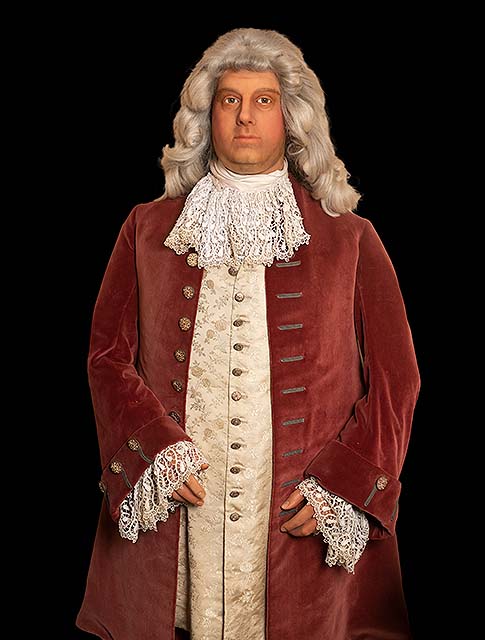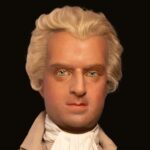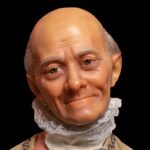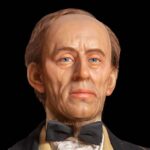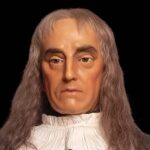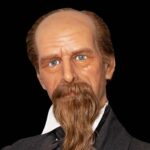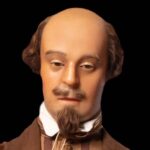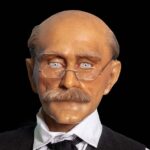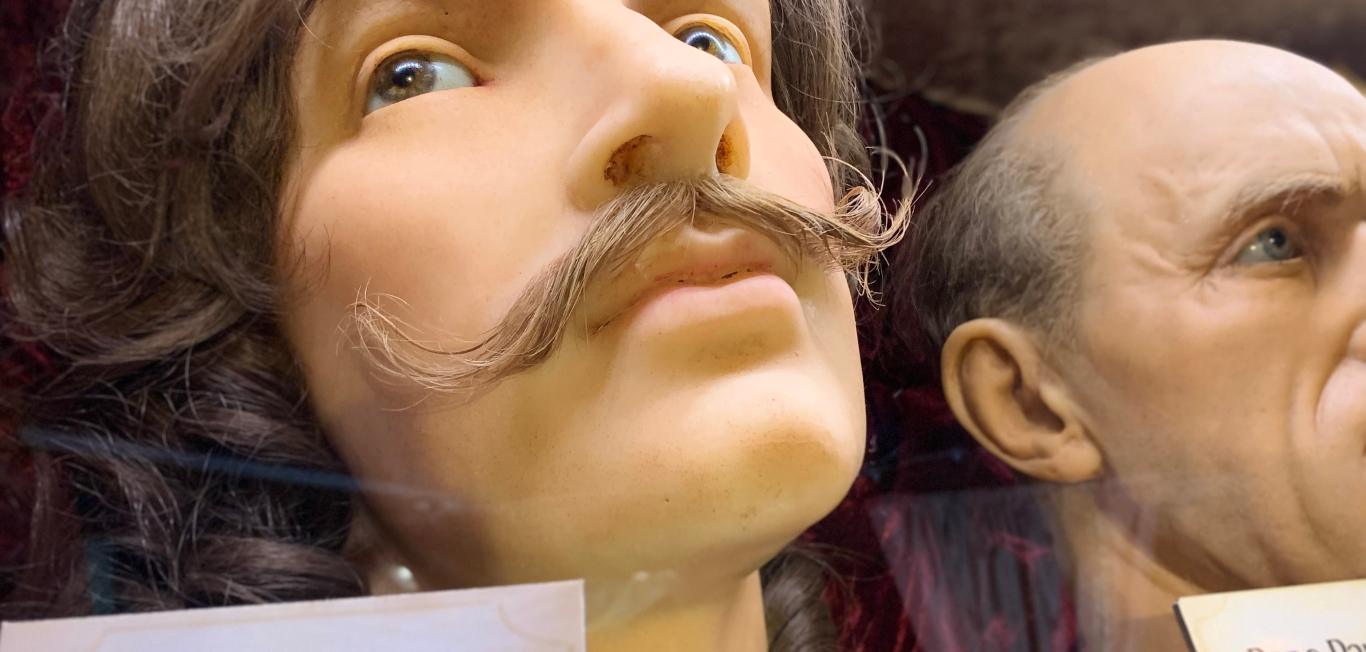Learn about George Frideric Handel
George Frideric Handel (1685-1759) was a composer whose biography is characterized by his immense contributions to Baroque era music and to the rise of oratorios in England. Born on February 23, 1685 in Halle, Germany, Handel specialized in Baroque style compositions, a style known for its continuous bass line – basso continuo – and contrasting sections. An interesting fact about Handel’s birth is that he was born the same year as Johann Sebastian Bach, another renowned Baroque composer. At the time of Handel’s birth, music and other arts were reserved for the upper echelons of society, a social class that his family was not in.
While a lot of Handel’s music is Italian-style operas, especially his earlier work, his most notable work is the oratorio, Messiah. Messiah cemented him as one of the foremost composers of his time. Handel’s Messiah endures to this day due to its rich, dramatic style, as well as its themes of redemption and hope. The musical legacy of George Frideric Handel lives on through his compositions. He also served as inspiration for many Classical period composers, including the well-known Wolfgang Amadeus Mozart and Ludwig van Beethoven. Handel is one of the many composers you can find at Potter’s Wax Museum in St. Augustine, Florida.
DID YOU KNOW?
Handel’s most notable work is the oratorio, Messiah.
The Early Years of George Frideric Handel
The biography of George Frideric Handel begins in Halle, Germany, a city that was part of Brandenburg-Prussia when he was born. His parents were Georg Handel, a barber-surgeon for the nearby courts, and Dorothea Taust, the daughter of a Lutheran minister. Handel had five older siblings from his father, Georg’s first marriage, and two younger sisters, with whom he shared the same mother.
Handel showed significant musical promise very early on in his life. In his pre-teen years, he traveled to Weissenfels, a short trip south of Halle, which served as a catalyst for his formal musical education. While playing the organ in a Weissenfels chapel, George Frideric Handel’s musical prowess impressed Duke Johann Adolf I, who suggested to Handel’s father that he take music lessons in Halle. Some narratives of George Handel suggest that his father was ardently against him pursuing music, but it is now believed that these were stories written to romanticize Handel’s rise to prominence as a composer.
Back in Halle, George Frideric Handel began taking music lessons at his local church under organist Friedrich Wilhelm Zachow. Historians note that Zachow was the only music instructor that George Handel ever had. Zachow opened Handel’s eyes to the famed Italian and German compositions that had previously been reserved for members of higher social classes. An interesting fact connecting Handel’s early musical development and his later compositions is that he was especially taken with learning the oboe, an instrument that was later emphasized in many of his compositions. The oboe is heavily used in Handel’s most famous piece, Messiah, still played by orchestras across the world centuries after its first performance on April 13, 1742.
On February 11, 1697, George Frideric Handel’s father, Georg Handel, passed away. At the time, Handel was only 11 years old. Agreeing to his father’s long-term plan for Handel to pursue a career in the liberal arts, Handel enrolled at the newly founded University of Halle in 1702 as a law student. However, his time as a student at the University of Halle was quite short, with him dropping out just a year later to pursue music and composition. During the next few years, Handel traveled to Hamburg and later to Italy following an invitation from Ferdinando de’ Medici, a known patron of the arts. George Handel’s time in Italy provided a massive influence on his style of writing music. Handel’s years in Italy also served as a place where his compositions flourished, with him writing many cantatas and oratorios, as well as two operas between 1706 and 1710.
Handel was chosen to be the Kapellmeister – the leader of the chapel’s choir – in 1710 for the Elector of Hanover, who would rise to be King George I of England in 1714, but left after a year to visit England at the invitation of the English aristocrat Charles Montagu. The next chapter of George Frideric Handel’s biography began when he chose to settle in England permanently in 1712, due to the ever-growing success of his music and continued support from the aristocracy. George Handel received an income of £200 a year from Queen Anne in 1713. In 1727, Handel became a naturalized English citizen, further cementing his place within English society.
Handel’s success as a composer while in England contributed to his being appreciated during his years. A life-size figure of Handel can be viewed today at Potter’s Wax Museum in St. Augustine, Florida.
DID YOU KNOW?
Handel received an income of £200 a year from Queen Anne in 1713.
George Frideric Handel’s Major Milestones & Achievements
George Frideric Handel’s music is most celebrated for his contributions to the development of oratorios, particularly in bringing oratorios that originated in Italy to an English audience. Oratorios are a form of musical composition that include choral and instrumental components to present a religious theme, typically a biblical story. The first English oratorio that George Handel composed was titled Esther, which follows the story of Esther from the Old Testament of the Bible. Handel’s Esther is considered to be the first oratorio ever written for an English audience. It was first performed in 1718 for the Duke of Chandos – Handel’s employer from 1717 to 1719 – and was revised in 1732. Before composing Messiah in 1741 – the oratorio widely considered to be Handel’s masterpiece – he wrote many other oratorios that were popular among the English, including Athaliah in 1733 and Saul in 1738.
When the German-born Handel first moved to England in 1712, he was focused on writing Italian operas that were popular among the Italian audiences while living in Italy under the patronage of the Medici family. Between the years of 1719 and 1734, Handel wrote for the Royal Academy of Music, which was created by English aristocrats who wanted to have greater availability of Italian operas within England. He was also given the title of Master of the Orchestra within the Academy. George Frideric Handel composed many operas during his time with the Royal Academy of Music, including Giulio Cesare in 1724 and Orlando in 1733. The final Italian opera in Handel’s composition repertoire is Deidamia, which premiered at the Lincoln’s Inn Fields Theatre in London on January 10th of 1741. From then on, Handel began focusing on the composition of oratorios, due to the changing musical tastes and preferences of English audiences.
Another major achievement in Handel’s career was his piece Zadok the Priest, a coronation anthem composed in 1727 for George II’s coronation. Zadok the Priest was one of four anthems that George Handel composed for George II’s coronation and was based upon the biblical story of the anointment of Solomon by Zadok, a priest. Since its composition, Zadok the Priest has been sung at every British monarch’s coronation. The longevity of George Frideric Handel’s coronation anthem is another pillar defining his legacy as a composer.
Late in Life
As a rare composer who was appreciated during his time, George Frideric Handel had the ability to support others who dreamed of pursuing music. He financially supported a charity in England that provided aid to struggling musicians and their families. In his later years, Handel was a patron of the Foundling Hospital, a children’s home in London, where he organized a benefit concert of his famed oratorio Messiah. These concerts, which originated in 1750, continued for the rest of his life. For his efforts, Handel was appointed governor of the Foundling Hospital.
DID YOU KNOW?
In his later years, Handel was a patron of the Foundling Hospital, a children’s home in London.
Handel composed his final oratorio, Jephtha, in 1751, which followed the story of Jephtha from the Book of Judges in the Old Testament of the Christian Bible. He struggled to finish this final oratorio due to increasing difficulty with the vision in his left eye, a struggle that he noted in the score. Handel’s vision began to wane in August of 1750 following a carriage accident in the Netherlands he experienced when traveling back to London after a trip to his birth country, Germany. His vision waned completely in 1752, bringing his notable career as a composer to a halt. An interesting fact about George Frideric Handel’s later life is that he underwent a botched eye operation by John Taylor in August of 1758 on his cataracts. Following Handel’s operation, his health quickly began to worsen. Handel passed away in his home on April 14, 1759, at the age of 74. Due to his fame and connection with the royal family, Handel received a state funeral with over 3,000 people in attendance and was buried in Westminster Abbey. In St. Augustine, Florida, a wax figurine of Handel – and other well-known composers – can be seen at Potter’s Wax Museum.
Fun Facts about George Frideric Handel
George Frideric Handel was an exceptional composer with plenty of interesting facts about his life.
George Frideric Handel was an avid art collector.
Handel loved to collect paintings and was often found at art sales. In his London home, he had a collection of 70 paintings and prints of all types. Historians note that he had landscapes and scenes from Greco-Roman antiquity within his vast collection of art.
George Frideric Handel was a naturalized citizen of England.
Originally from Halle in modern-day Germany, Handel was a foreigner when he permanently moved to England in 1712. King George I appointed Handel as the Chapel Royal and as the music teacher of his daughters in 1723. However, due to an act of Parliament known as the Schism Act, Handel would be unable to teach without a license from a bishop. In 1727, the House of Lords was presented with a petition to naturalize Handel as an English citizen, a petition that passed Parliament and received an assent from the King. Among a couple of other foreign-born men, Handel was naturalized in an act historians call Handel’s Naturalization Act.
Handel never composed another opera after Messiah.
The success of Messiah, along with the changing tastes of the English and a breakdown, possibly a stroke, by Handel in 1737, meant he never composed another opera. Following Messiah, he shifted focus to choral-based works like oratorios that he saw success with for the rest of his life.
FAQs
What did Handel compose/most famous works?
Handel composed many operas and oratorios during his years in Italy and England. The majority of his famous pieces are oratorios that he composed while living in England. He is most known for his oratorio Messiah. Messiah was written in England in 1741 and was first performed in 1742.
What type of music did Handel write?
George Frideric Handel wrote a variety of pieces throughout his working years as a composer. Under the patronage of the Medici family in Italy, Handel predominantly wrote Italian-style operas. After his move to England in the early 1710s, Handel wrote oratorios and instrumental pieces and continued writing operas. The success of his masterwork, Messiah, contributed to his focus on oratorios during his later years.
What instruments did Handel play?
George Handel played many instruments such as the harpsichord, the organ, the violin, and the oboe. He first played the harpsichord – an instrument similar to the modern piano – after receiving one as a gift from family for his seventh birthday. He later learned the violin and oboe under the tutelage of his teacher Friedrich Wilhelm Zachow in Halle.
How many oratorios did Handel write?
Handel wrote 29 oratorios during his lifetime. The most famous of his oratorios is Messiah, which is considered to be his masterpiece and is still frequently performed today. Popular among the British audiences that he wrote for, Handel focused on writing oratorios while he lived in England, especially after the success of Messiah. Other oratorios written by Handel include Esther and Saul.
What is the Messiah?
Messiah is an oratorio that George Frideric Handel wrote in England in 1741. This oratorio was written in three parts, following the story of Christ’s birth, death, and resurrection. Handel largely used the Old Testament as inspiration for this composition. Messiah was originally written for Easter, but is now performed during the Christmas season.
